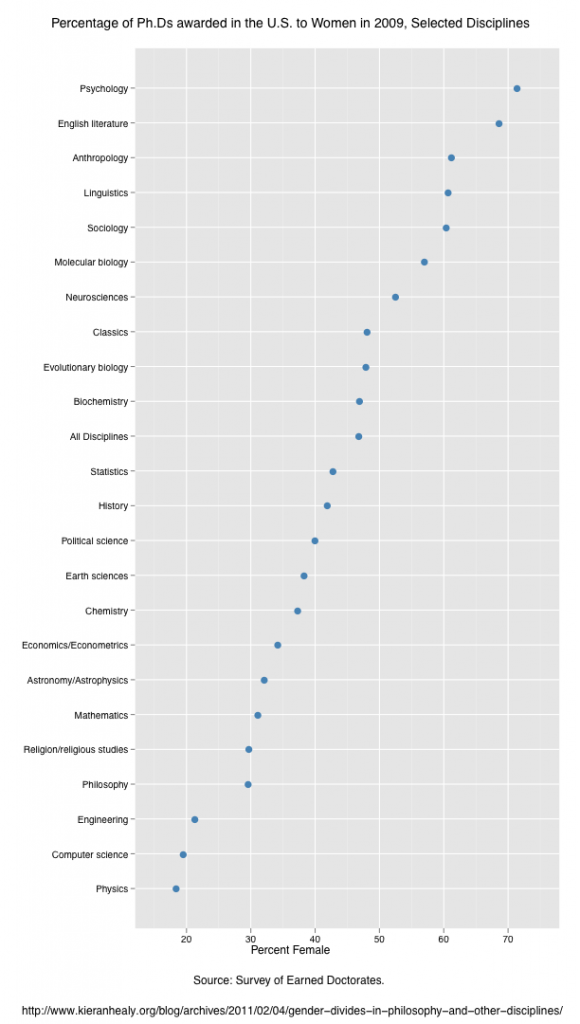Via Sociological Images (who in turn got it from Kieran Healy) I stumbled across the eye-opening chart below:

(Click the image to get a larger version.) See that? That's the percentage of U.S. PhDs awarded to women in 2009, broken out by discipline. Actually, that's only a small fraction of the disciplines included in the original data set-- you can go here to see the original data, or here to see a similar but much larger chart for all disciplines.
(For those of you who can't see the chart, it shows about 20 disciplines, sorted from most female-skewed to most male-skewed. At the top are things like Psychology, Linguistics and Sociology, which are 60% to 70% female. In the middle are things like BioChem, Statistics and History with 40% to 50% female- PhDs. At the bottom three are (in order) Engineering, CS, and Physics at around 20% women PhD recipients. And there's actually a sharp break between those three and the next three: Philosophy, Mathematics and Religious Studies, who come in at 30%. So not only is CS second from the bottom, it is materially worse than the seminary.)
I honestly don't know what to make of this chart, other than a few shallow thoughts:
- An 80-20 split among CS PhDs feels right, actually, based on anecdote and subjective impressions. But I didn't realize how bad that gap was compared to other disciplines.
- The full chart is worth a look, as it breaks out these disciplines into sub-disciplines. It shows there's actually a lot of variation between sub-fields of mathematics, for example, and for physics. But these may be artifacts of small sample-sizes-- I'm not sure if the absolute numbers at this level of granularity are large enough to support any conclusions. But the chart does support another impression of mine: Theory of Computation (my particular field) is doing much better than general CS. Well, relatively speaking.
- As I've said before, though, I don't care about this issue for social-justice reasons. I care about this issue because I want more people to go into computer science research. So what I'd really like to know is whether the gender gap correlates in any way with overall population of researchers / PhD students. For example, Mathematics used to have a gap like ours not too long ago, I'm told. They still have work to do, of course, but did the number of PhD students in Math go up as the gender gap closed?
- While I'm thinking about math, I like how this diagram refutes the argument that women don't go into CS or engineering because women can't hack math. Bull crap. Look at the numbers for Statistics. Look at the numbers for BioChem or Economics. Heck, look at the numbers for Mathematics. They're all doing better than CS. Is anyone seriously going to argue that CS is more math-heavy than Math?